FOUNDING MEMBERS
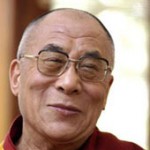
Tenzin Gyatso – The Dalai Lama
Tenzin Gyatso, the XIVth Dalai Lama, is a moral figure and spiritual leader revered worldwide. He was born to a farming family on July 6, 1935 in a small village called Taktser in northeastern Tibet. He was recognized, in accordance with Tibetan tradition, at the age of two as the reincarnation of his predecessor, the XIIIth Dalai Lama. The Dalai Lamas are believed to be Embodiments of Compassion, who choose to reincarnate for the purpose of serving humanity. Winner of the Nobel Prize for Peace in 1989, he is universally respected as a spokesman for the compassionate and peaceful resolution of human conflict. He was awarded the United States Congressional Gold Medal in 2007 in recognition for his “many enduring and outstanding contributions to peace, non-violence, human rights and religious understanding.” He has traveled extensively, speaking on subjects including universal responsibility, love, compassion and kindness.His Holiness is committed to the promotion of the human values of compassion, forgiveness, tolerance, contentment and self-discipline – what he calls secular ethics – and also promotes religious harmony and understanding among the world’s major religious traditions.
Click here to view a message from His Holiness the Dalai Lama.
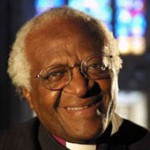
Desmond Mpilo Tutu
The name Desmond Tutu resonates strongly with people all around the world. While his vigorous anti-apartheid activism in his native South Africa first propelled him into the glare of international news media, today he is revered as a ‘moral voice’ to end poverty and human rights abuses. While he is an Anglican Archbishop emeritus and steadfast in his religious beliefs, Tutu places great value on religious inclusiveness and interfaith dialogue.Born in Klerksdorp, near Johannesburg, South Africa, in 1931, Tutu initially followed his father’s example and obtained teaching qualifications. However, following the introduction of Bantu education in 1958, he decided to enter the ministry. He was ordained in Johannesburg three years later.Following further theological studies at King’s College in London, Tutu held several positions in teaching and theological work in southern Africa. In 1978, he was persuaded to leave his job as Bishop of Lesotho to become the new General Secretary of the South African Council of Churches (SACC). In this position, which he held until 1985, Tutu became a national and international figure.
The SACC was committed to fulfilling the social responsibility of the Church, and as its chairperson, Tutu led a formidable crusade in support of justice and racial conciliation in South Africa. His tireless work was recognized in 1984, when he was awarded the Nobel Peace Prize. Then, following a short stint as the Bishop of Johannesburg, Tutu was elected Archbishop of Cape Town in 1986, an office he held until his retirement in 1996.
While many of Tutu’s critics predicted that he would enter government, he never did. Instead, he became a key mediator in the difficult transition toward democracy.
In 1996, he was appointed by President Nelson Mandela to chair the Truth and Reconciliation Commission, a body set-up to probe gross human rights violations during apartheid.
Following the presentation of the Commission’s report to then president Mandela in October 1998, Tutu has been a visiting professor at Emory University, Atlanta, the Episcopal Divinity School, Boston and the University of North Florida, Jacksonville. He has published several books, the latest of which is titled ‘God Has a Dream’. He has a private office near his home in Milnerton, Cape Town.
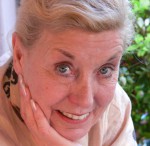
Betty Williams
Betty Williams was a co-recipient with Mairead Corrigan of the Nobel Peace Prize in 1976 for her work as a cofounder of Community of Peace People, an organisation dedicated to promoting a peaceful resolution to The Troubles in Northern Ireland. On the occasion of receiving the Nobel Prize, she said, “The Nobel Peace Prize is not awarded for what one has done, but hopefully what one will do.” She is also the Chair of Institute for Asian Democracy in Washington D.C. and a Distinguished Visiting Professor at Nova Southeastern University. In 2006, Williams was one of the founders of the Nobel Women’s Initiative along with sister Nobel Peace Laureates Mairead Corrigan Maguire, Shirin Ebadi, Wangari Maathai, Jody Williams and Rigoberta Menchu Tum. Six women representing North America and South America, Europe, the Middle East and Africa decided to bring together their experiences in a united effort for peace with justice and equality. It is the goal of the Nobel Women’s Initiative to help strengthen work being done in support of women’s rights around the world.As a result of many years of work, The Global Children’s Studies Center was founded by Mrs. Williams in 1992. This evolved into founding World Centers of Compassion for Children International in 1997, in honor of His Holiness the Dalai Lama.
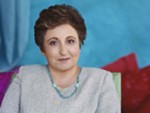
Shirin Ebadi
Shirin Ebadi is a lawyer, human rights activist, and the recipient of the 2003 Nobel Peace Prize for her work defending the rights of women and children in Iran, and advocating an interpretation of Islam which is compatible with democracy and human rights. She is the first Iranian and Muslim woman to receive the prize. Ebadi received a law degree from the University of Tehran in 1965, and became one of the first female judges in Iran.In 1975, she was the first Iranian woman to preside over a legislative court. Following Iran’s Islamic Revolution in 1979, Ebadi was demoted to the position of a clerk in the court she had presided over because the revolution deemed women unfit to serve as judges. Unable to accept the discrimination against her, she resigned, and although her application was repeatedly rejected, finally obtained a license to open a law firm. For the next two decades, Ebadi devoted her life to the promotion of women’s rights, the defense of children, and political activists. Her organization, the Association for Human Rights Advocates, provides pro bono legal service to political prisoners in Iran. Shirin Ebadi has spoken out strongly against discrimination and injustice in her country, at times despite great risk to her own safety.In 2000, she spent a month in solitary confinement as a result of defending the family of a student killed by the police in protests in Tehran. Shirin Ebadi’s principal arena is the struggle for basic human rights and the fundamental value that political power in a community must be built on democratic elections. She favors dialogue as the best path to changing attitudes and resolving conflict, and as a conscious Muslim believes there is no conflict between Islam and fundamental human rights.
Dr. Ebadi is the founder of three NGOs in Iran, The Association for the Defense of the Rights of the Child, The Association for Human Rights Advocates, and the Organization against Mines in Iran. She is the author of 14 books, including available in English a memoir Iran Awakening; Refugee Law in Iran; and, The Golden Cage.
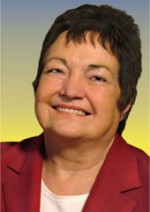
Mairead Maguire
Mairead Maguire was awarded the Nobel Peace Prize in 1976 for her extraordinary actions to end the sectarian violence in her native Northern Ireland. She shares the award with Betty Williams.Mairead was the aunt of the three children who died as a result of being hit by an Irish Republican Army getaway car after its driver was shot by a British soldier. Mairead responded to the violence facing her family and community by organizing, with Betty Williams, massive peace demonstrations appealing for an end to the bloodshed.The two organized a peace march attended by 10,000 Protestant and Catholic women, to the graves of the Maguire children. The march was disrupted by members of the IRA, who accused them of being influenced by the British. The following week, 35,000 people marched with Betty and Mairead, demanding an end to the violence in their country. The pair, along with journalist Ciaran McKeown, also founded Peace People, a movement committed to building a just and peaceful society through nonviolent social action. Mairead currently serves as Honorary President.
In the thirty years since receiving the award, Mairead has dedicated her life to promoting peace, both in Northern Ireland and around the world. Her message is simple —nonviolence is the only way to achieve a peaceful and just society. Working with community groups throughout Northern Ireland, as well as with political and church leaders, she has sought to promote dialogue between the deeply divided communities of Catholics and Protestants.
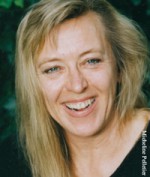
Jody Williams
Jody Williams received the Nobel Peace Prize in 1997 for her work to ban landmines through the International Campaign to Ban Landmines, which shared the Peace Prize with her that year. At that time, she became the 10th woman — and third American woman — in its almost 100-year history to receive the Prize. Since her protests of the Vietnam War, she has been a life-long advocate of freedom, self-determination and human and civil rights.Like others who’ve seen the ravages of war, she’s an outspoken peace activist who struggles to reclaim the real meaning of peace—a concept which goes far beyond the absence of armed conflict and is defined by human security, not national security. Williams believes that working for peace is not for the faint of heart. It requires dogged persistence and a commitment to sustainable peace, built on sustainable development, environmental justice and security, and meeting the basic needs of the majority of people on our planet.Since January of 2006, Jody Williams has worked to achieve her peace work through the Nobel Women’s Initiative, which she chairs. Along with sister Laureate Dr. Shirin Ebadi of Iran, she took the lead in establishing the Nobel Women’s Initiative, and was joined by sister Laureates Wangari Maathai (Kenya), Rigoberta Menchu Tum (Guatemala) and Betty Williams and Mairead Maguire (Northern Ireland). Its mission is to use the prestige and access afforded by the Nobel Prize to spotlight and promote efforts of women’s rights activists, researchers and organizations working to advance peace, justice and equality for women. By helping to advance the cause of women, the Nobel Women’s Initiative advances all of humanity.
In February-March 2007, Williams lead a contentious High Level Mission on Darfur for the UN’s Human Rights Council. She presented the Mission’s hard-hitting report to the Council in March of that year and continues to be actively involved in work related to stopping the war in Darfur. Williams continues to be recognized for her contributions to human rights and global security. She is the recipient of fifteen honorary degrees, among other recognitions. In 2004, Williams was named by Forbes Magazine as one of the 100 most powerful women in the world in the publication of its first such annual list.
